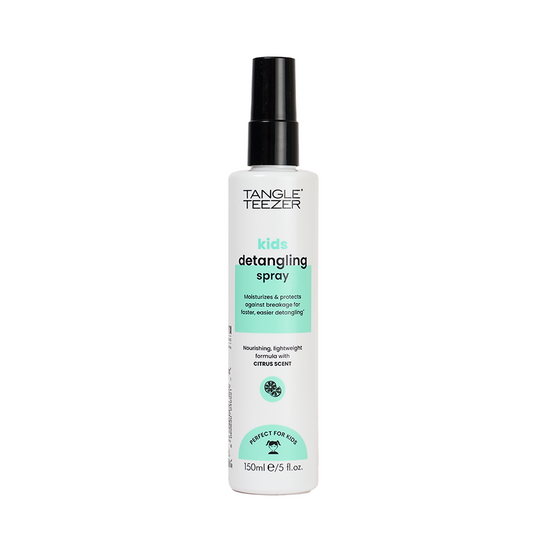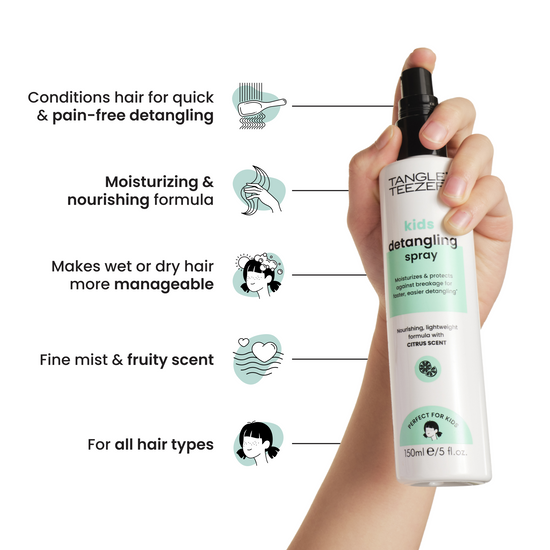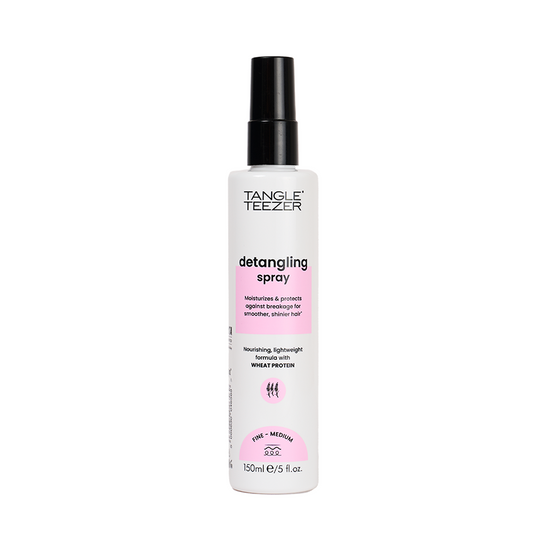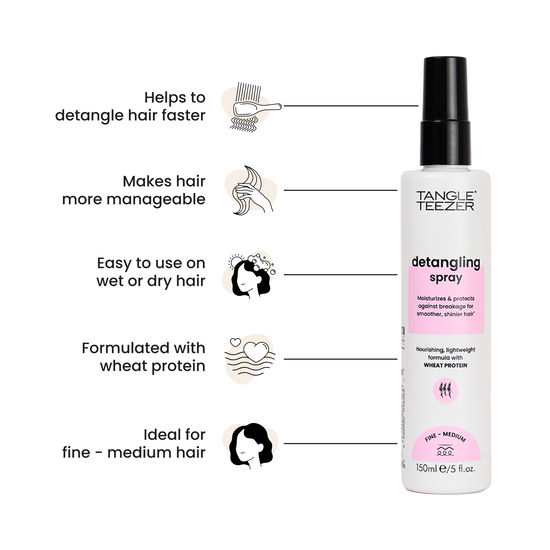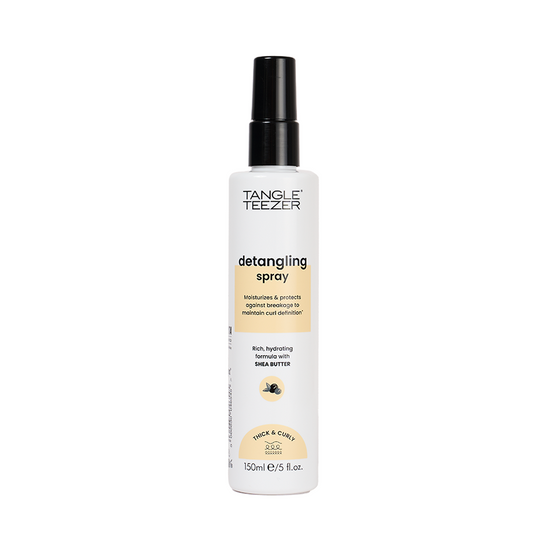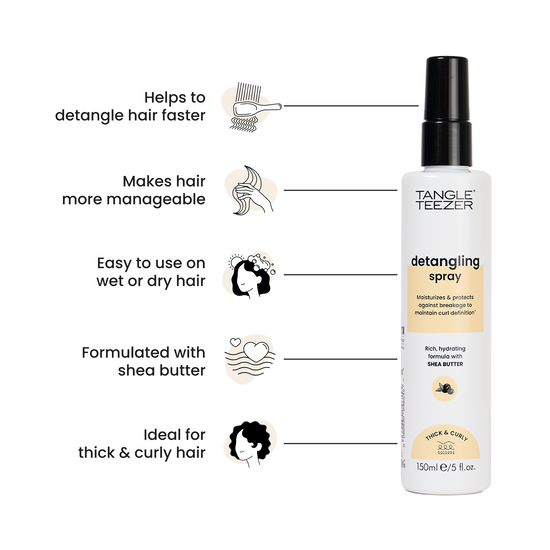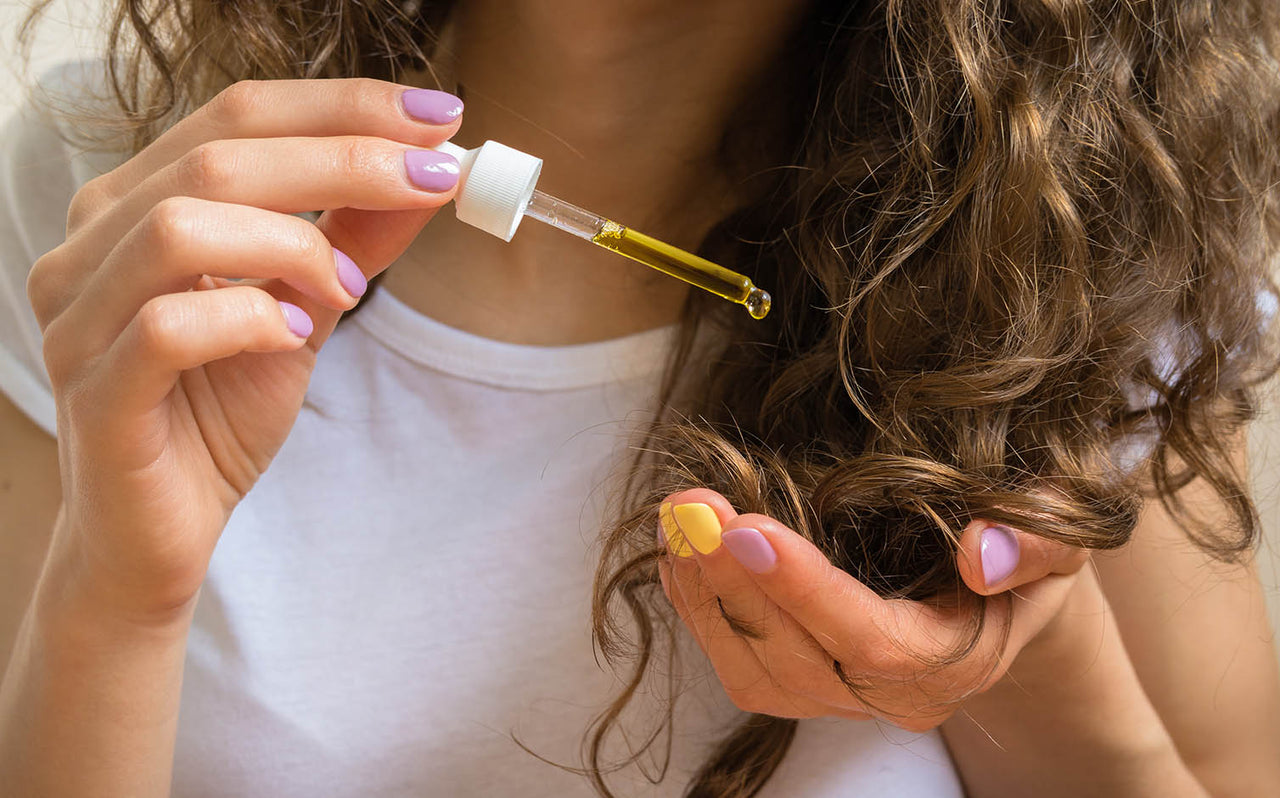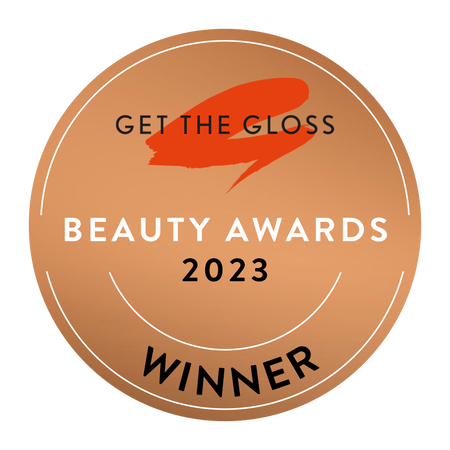In case you haven’t heard, hair oils are having a moment. Whilst oils and serums have long been part of a luxurious skincare regime, we’re now fully embracing the magic they can bring to our hair - and with good reason. The list of hair oil benefits is long and thick - much like your hair if you use them!

From moisturising dry ends to helping you detangle with ease, hair oils are the multifaceted marvels of haircare. But what’s the right oil for your hair type? How often should you apply them? And how can you use them without making your hair greasy? These questions sometimes stop people from living their best hair oil life - but not anymore.
Here’s our handy guide to everything you need to know about hair oils.
What types of hair benefit from hair oil application?
You might assume that super hydrating hair oils are only for super dry hair - but that’s not necessarily true. Whilst thirsty hair can definitely benefit from the moisturising power of hair oils, other hair types can - and should - use them too. Someone with short or fine hair could use oils to encourage growth and protect from damage. People with curly hair might use them to define curls and reduce frizz. If you’re growing your hair long, oils can be great for detangling and keeping split ends at bay in between trims. The possibilities are pretty endless!
However, every hair type is beautiful and unique in its own way - and requires its own approach to hair oils. Someone with Afro-textured hair is unlikely to use the same oil as someone with a fine pixie cut. The key is finding the right hair oil for you - but more on that later.
What are the benefits of using hair oil?
By now, it’s probably clear that there are a host of benefits to using hair oils! Here are just a few.
Helps to apply moisture and lock it in for long periods of time.
Hair oils tend to fall into two categories - moisturising oils and sealing oils. Moisturising oils - think Coconut and Argan - are amazing for getting deep hydration into your hair strands. Sealing oils - like Jojoba and Almond Oil - will lock whatever moisture is already in or on your hair. This makes them a great last step following a deep conditioning treatment - and especially useful for people with thick and curly hair!
Can strengthen your hair
We all want strong, healthy hair that looks good and feels great - and oils can help do just that. Most hair oils are bursting with minerals and vitamins that are essential for hair health and strength - so using them is a bit like having your morning superfood smoothie! Applying hair oil to your scalp regularly also helps to remove harmful toxins and clear your hair follicles - strengthening your hair from root to tip.
Can soften hair
Hair hydration and softness go hand in hand, and using moisturising hair oils can really help your hair feel smooth and supple. Oils penetrate the hair shaft and increase elasticity - which makes it feel softer and break less easily.
Can prevent dandruff
Oiling your hair is not only amazing for your hair, it also promotes a healthy scalp too. Dandruff is often a result of dry, flaky skin on the scalp - so giving this area some TLC by exfoliating and applying hair oil can definitely help to reduce dandruff.
Some can promote hair growth
Whilst hair growth is never guaranteed, it does seem that hair oils could indirectly encourage hair to grow a bit faster. A lot of this comes down to the improved health of your scalp, but it is also the general health and strength of your hair. Reduced breakage = more time for hair growth!
Protects from heat damage
When you oil your hair you essentially coat the strands in a protective layer. This can be really helpful when blow-drying or styling your hair with straighteners or tongs - as these processes can really dry out and damage your hair. Oils can also keep UV rays at bay and protect from sun damage!
Can make hair shine
Lipids (the fats) in your hair play a very important role in keeping your hair shining bright and looking glossy. These are often lost due to damage, styling and even pollution, but hair oils are full of fatty acids that can help replace those lost lipids and turn up the shine once again!
How often should hair oil be applied?
This all really depends on your hair type and hair care routine - as well as how you’re using your oil! If you are applying a few drops of pre-styling to hydrate dry ends, there’s no reason you can’t do this daily. However, if you’re going for a deep oily, overnight treatment, you may want to do this once or twice a week - to tie in with your wash day.
The truth is that there’s no right or wrong frequency for using oil, but always listen to your hair and do what’s right for you. If you’re using oil every other day and notice your hair is becoming greasy, try scaling it back to once a week. If you’ve introduced hair oils into your weekly routine and are still finding your hair is dry or damaged, increase the amount of times you are using it - or maybe look into trying a different oil.
You also don’t need to feel like you are tied into using one oil in its purest form. Many high-quality hair products contain natural oils - from coconut to Argan oil - and you can also mix up your own favourite oil combination and dilute it with water in our Fine Mist Spray Bottle - for oiling as you style.
What oils are good for hair?
Argan Oil
Argan Oil is known as ‘liquid gold’ amongst beauty fans, and we can see why! It has a multitude of benefits and can be used on almost all hair types thanks to its lightweight texture - although if you’ve got curls you may want something a little heavier. Perfect for adding instant shine and moisture to dry, frizzy ends, it can also be used as part of a deep conditioning treatment.
Jojoba Oil
When it comes to replicating your hair’s natural oils, Jojoba may be up there with the best dupe. Whilst many oils simply moisturise the outer layer of your hair, jojoba is made up of incredible fats that penetrate the hair cuticle, mosturising from the inside out! It also seals and locks in moisture keeping your hair hydrated for longer. It’s perfect for an overnight treatment for dry or damaged hair and can also be used with a leave-in conditioner to keep moisture locked in.
Manketti Oil (Mongongo Oil)
A relative newcomer on the mainstream haircare scene, Manketti Oil is giving long-standing favourites like Coconut and Argan Oil a run for their money! Full of the same fatty acids that hair oils are known for, it’s guaranteed to help your hair feel softer and shinier. However, it also has a higher protein content, making it a great oil for repairing and protecting weak, brittle hair strands.
Caster Oil
Disclaimer: We know that this oil doesn’t have the sweetest smell - but we promise that the results are worth it! If you are looking for a healthier scalp, reduced dandruff and the potential of increased hair growth - then cast your eyes on castor oil. This oil is full of ricinoleic acid, which is known to increase blood flow to the scalp and stimulate the hair follicles, whilst reducing inflammation that can trigger dandruff. Use in combination with our Scalp Exfoliator and Massager and you’ve got yourself absolute #scalpgoals.
Coconut Oil
From frying vegetables to removing make-up - is there anything Coconut Oil can’t do? There are so many reasons to use coconut oil on your hair - from calming your frizz to detangling knots (and it also makes a great pre-shampoo treatment). However, you can have too much of a good thing - especially if you have curly hair. With this hair type, coconut oil can lead to protein buildup, which could cause your hair to become stiff and prone to breakage. If you start to notice these results, it might be best to look into another type of oil.
Olive Oil
That’s right - your kitchen cupboard staple can be used to smooth and hydrate your hair! However, raw olive oil has quite large molecules, which makes it difficult to penetrate your hair strands. This means that whilst it might give instant smoothness and shine on the surface, it probably won’t have long lasting effects. It’s usually better to look for hair products that contain olive oil, rather than using it straight from the kitchen!
Almond Oil
Almond oil is a great sealer oil, perfect for locking in moisture for a long time. However, unlike most sealers, it also comes with some other great hair health benefits - it’s really nourishing for your scalp and also contains magnesium, which can help prevent hair loss. Obviously, if you have a nut allergy almond oil is not the one for you - but you can find similar benefits in oils such as Coconut and Aloe Vera.
How should hair oil be applied?
There are numerous ways you can use hair oil in your routine - whether you want a quick fix or a deep hydrating treatment.
Pre-Wash Overnight Oiling
● Before you start, make sure you’re tangle-free! Use one of our Detangling Hairbrushes most suited to your hair type to detangle your dry hair - preparing for your evening of hair and scalp self care.
● Take your chosen oil and massage it into your scalp using your fingers or our Scalp Exfoliator and Massager.
● Gently cover with a towel, cap or piece of material and settle down for a good night’s sleep.
● The next day, shampoo your hair whilst dry, then rinse thoroughly. Condition and shower as normal then get ready to enjoy your super hydrated hair!
Light Oiling Whilst Styling
● You can use this method on wet or dry hair - but you definitely want it tangle free! After washing, use our Wet Detangler or Naturally Curly Detangler (depending on your hair type) to remove any knots.
● You can then mix up an oil solution that works for you! We like to melt down some coconut oil and combine it with some lavender oil and Vitamin E oil.
● Pour your oil mix into our Fine Mist Spray Bottle, add a cup of water, screw the lid on and then shake it like a polaroid picture!
● Give a light spritz all over your hair then continue with your styling routine - or simply walk out the house to show off your shiny locks!
● If you feel like you still need extra moisture on dry ends, apply a little bit of Argan Oil with your fingers.
Hair oils aren’t something you need to be intimidated by - it’s all about experimenting to find the right oil for you and learning how to bring them into your own personal routine. Once you do, your hair will feel stronger and look healthier - and your scalp will thank you too!
